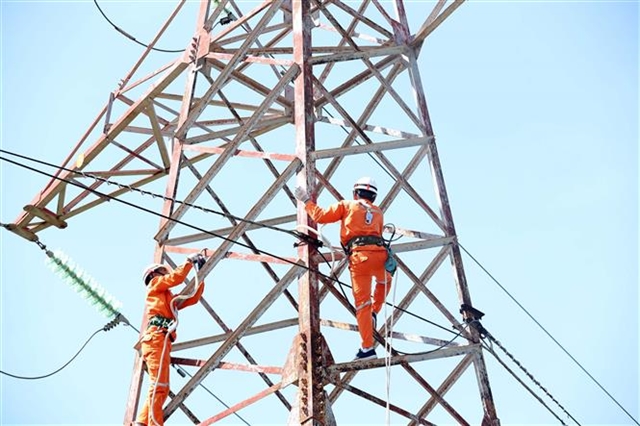Experts have recommended that there should be a clear and transparent mechanism, so that investors can rest assured to spend money to build renewable power sources.

There should be a clear and transparent mechanism so that investors can rest assured in spending money to build renewable power sources.
Thanks to the policy of encouraging investment in renewable energy and attractive electricity prices, many investors invested money in building power sources five to seven years ago, according to Prof. Dr Tran Dinh Long.
The growth of wind and solar power sources is increasing rapidly, so there is a situation of investing in factories but not knowing who to sell to, or encountering the situation that the power grid is not invested in time, leading to overload, investors could not generate electricity for the grid, causing losses.
Therefore, the State has stipulated that before businesses apply for a licence to invest and build power sources, they must clearly know who the customers consuming their products are, and must be able to sign a purchase contract before spending money on building power sources.
"We have also repeatedly suggested to the State that there should be a clear and transparent mechanism so that investors can rest assured to spend money to build renewable power sources. Specifically, the State should research and issue a policy on long-term electricity prices so that investors can calculate economic and financial indicators for the power projects they intend to invest in. In fact, electricity prices can be calculated and forecast for the next 5-10 years," said Long to Suc Khoe & Doi Song (Health and Life) online newspaper.
Although renewable energy is abundant, it is unstable and dependent on the weather, according to the expert.
Therefore, no matter how much natural gas is available, it needs to be exploited to the maximum to generate electricity.
"This is a power source that is both more stable and eco-friendly," he said.
Renewable energy development must take into account storage. However, the problem of storage batteries is also very expensive, they are not long life and there are many studies that need to be calculated for environmental issues.
Therefore, Long said that Viet Nam should use the form of pumped-storage hydroelectric power plants, specifically, building a power plant that could both pump water and generate electricity. "Our country has so much potential," he said.
Viet Nam should pilot a number of projects, if they prove beneficial, they should be applied on a large scale, he noted.
The pilot time to build this system is equivalent to that of a hydroelectric power plant, which takes about three to five years.
Therefore, to ensure the target of renewable energy by 2030, it is necessary to start piloting as soon as possible, according to Long.
Proposing to transfer the National Load Dispatch Centre from EVN to MoIT
The Ministry of Industry and Trade (MoIT) has just submitted Report 3711/TTr-BCT to the Prime Minister on the transfer of the National Load Dispatch Centre (A0) to this Ministry.
Accordingly, the ministry offers two options for converting the A0 model.
The first option is that A0 becomes a public non-business unit providing electricity system and market operation services under the Ministry of Industry and Trade.
The second option is that A0 becomes a one-member limited liability company that operates the power system and operates the electricity market with 100 per cent State capital under MoIT.
According to the Ministry of Industry and Trade, both options above ensure the criteria of A0's independence and objectivity compared to the current one, the ability to coordinate with related units and the ability to be flexible in innovation and creativity.
Reviewing current regulations, MoIT does not have the function to directly manage and administer A0. Therefore, in order to adjust the management and direction of A0 to this ministry, the Ministry of Industry and Trade proposes to amend a number of Government Decrees.
Previously, in the Government's plan to restructure the electricity industry from 2016 to 2020, with an orientation to 2025, A0 will transform into Power System and Market Operation One Member Limited Liability Company, applying independent accounting within EVN in the 2019 – 2020 period.
From 2021 - 2025, this unit will be transformed into an independent unit in terms of personnel, legal and finance, not sharing the interests of the electricity seller and buyer, with 100 per cent charter capital managed by the State.
However, at present, A0 has not yet had the restructuring policy approved and has not yet implemented this project. — VNS






